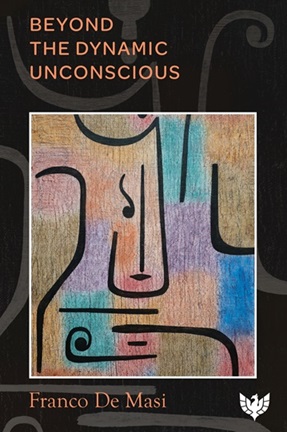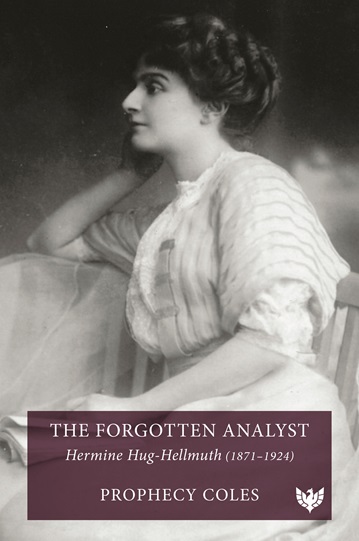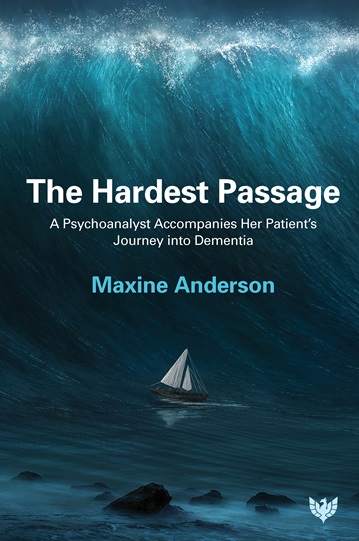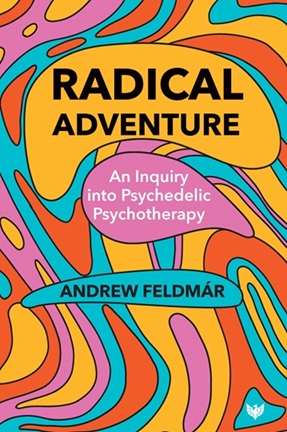A Reading of Anxiety: Lacan’s Seminar X
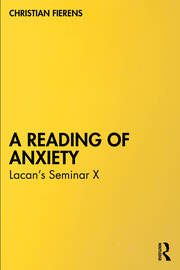
Book Details
- Publisher : Routledge
- Published : November 2024
- Cover : Paperback
- Pages : 256
- Category :
Lacanian Psychoanalysis - Category 2 :
Forthcoming - Catalogue No : 97886
- ISBN 13 : 9781032762760
- ISBN 10 : 1032762764
Also by Christian Fierens
There are currently no reviews
Be the first to review
A Reading of Anxiety follows the sessions of Lacan’s Seminar X, examining its presentation of the structure of anxiety, step by step.
Christian Fierens considers why and how the structure of anxiety always depends on speech even if it remains on the threshold between the symbolic and the real and explains that there is a genuine connection between anxiety and the Lacanian object a which puts in doubt the obviousness of any object. The book then explores the importance of anxiety for the practice of the analyst, determines that the object a is fundamentally void and discusses encountering nothingness. Finally, Fierens establishes that this nothingness inside the object and inside anxiety leads to the truth of anxiety.
A Reading of Anxiety will be an essential book for students as well as clinicians to find a practical way to cope with anxiety as a clinical approach to the real in psychoanalysis. It will be relevant to all readers interested in the work of Lacan.
Reviews and Endorsements
This fluent, clear, readable translation by Patricia McCarthy of Christian Fierens’ Lecture de l’Angoisse provides an essential resource for any serious clinical investigation of anxiety. Fierens’ Lecture provides an effective tool for working psychoanalytically with anxiety in an epoch when the dominant reaction is to remove it, to delete the cause. It is not proposed as a definitive reading but as Fierens’ own taking on the questions Jacques Lacan articulates in his Seminar and making them his own. In turn, this translation allows readers in English to take on these questions and make them their own. In a way that can only be fruitful, it demands a serious engagement by the reader, an engagement singular to each which will contribute crucially to the reader’s formation and the articulation of their relation to psychoanalysis.
Barry O’Donnell, Ph.D., practises psychoanalysis and is a member of the Irish School for Lacanian Psychoanalysis (ISLP). He is Director of Psychotherapy Programmes in the School of Medicine, University College Dublin and Director of the School of Psychotherapy at St. Vincent’s University Hospital, Dublin
A helpful and challenging book is this Reading Anxiety by Christian Fierens. Its importance goes far beyond Lacan's Xth seminar whose sessions it follows in order to comment explicitly on them. Very well documented, with references to Freud and to Lacan's own sources of inspiration, it is an indispensable work not only for those who want to get to know Lacan, but also for those who want to explore the clinical and theoretical wiring of anxiety from a Lacanian point of view, including questions of the object (a), desire and Jouissance, the Real, the Symbolic, the Imaginary.
Gertrudis Van de Vijver, Professor in philosophy, Ghent University, practicing psychoanalyst
Reading Anxiety is an intricate appraisal of Jacques Lacan’s Seminar X, in which Lacan produces the central notion of the ‘object cause of desire’. The beauty of Christian Fierens’ approach is that it is not an explication, but rather a creative reading that invents a new methodology in its theoretical elaboration. Fierens stresses, moreover, the necessity for each reader of Lacan’s work to produce his or her own original reading.
Michael Gerard Plastow, Psychoanalyst (The Freudian School of Melbourne, Association Lacanienne Internationale) and child psychiatrist (Alfred Child and Youth Mental Health Service)
This book presents a comprehensive and engaging reading of one of Lacan's key seminars by one of the finest practicing analysts and teacher of psychoanalysis in the Lacanian community today. Rigorous and admirably accessible, it gives an excellent account of an intricate development of Lacan's notion of anxiety by situating it in the gap between jouissance and desire. There are a few books devoted to Lacan's seminar on anxiety. In a clear and careful reading, Christian Fierens offers insightful treatment of the role of anxiety in Lacan's theory of the subject of the unconscious by illuminating the theoretical elaborations introduced by Lacan in his seminar on anxiety and exploring their clinical implications with remarkable perspicacity.
Jelica Šumič Riha, Institute of Philosophy, Research Centre of the Slovenian Academy of Sciences and Arts
Table of Contents
Part One - Anxiety and the real
Chapter 1 - Anxiety as 'real', starting from the signifier
Lesson 1 - From the signifier to the reference table (inhibition/symptom/anxiety)
1. How to understand the signifier?
2. How do we approach anxiety?
3. The Reference Table Inhibition, Symptom and Anxiety
Lesson 2 - Anxiety as the Truth of Desire
1. How to Approach Anxiety - Three Methods
2. Anxiety as the Truth of Desire
3. The Division of the Other by the Question of the Subject
Chapter 2 - The real and non-knowledge
Lesson 3 - The unconscious implicates the real
1. The symbolic and the real
2. The imaginary and the real
Lesson 4 - Unheimlichkeit
1. The home of the speaking being
2. The Sandman
3. Anxiety and Phantasy in Neurosis
Lesson 5 - Not-Knowing and the Void
1. Not-knowing in philosophy
2. The Nightmare and Anxiety
3. Neurosis and its treatment of the void
Part Two - Anxiety and Act involve object a
Chapter 3 - Anxiety, Act and object a
Lesson 6 - Anxiety, acting out and passage à l’acte
1. The structure of anxiety
2. Action and Stumbling against a Background of Anxiety : Acting out and Passage à l’acte
3. Jouissance, Desire and the Law
Lesson 7 - Around object a
1. Presentation of object a
2. The Castration Complex and the Primordial Cut
3. Object a and the Transference
4. Topology: object a and the cross-cap
Chapter 4 - Object a and the Transference
Lesson 8 - Introduction of object a
1. object a as the cause of desire
2. Object a in the Seminar on Ethics
3. Desire and the law: from where does it come?
4. The empty space that allows the transference to be situated
5. The Young Homosexual Woman
Lesson 9 - Transference in acting out and passage à l’acte
1. Signifying division and the end result
2. Having and Being in the Development of the Ego
3. Acting out, passage à l’acte, the transference
Part Three - The desire of the analyst
Chapter 5 - Lack, an introduction to the desire of the analyst - Four types of circle
Lesson 10 - Lack, The Transference and Mourning
1. Frustration, deprivation, castration
2. Castration and the Cross-cap
3. Two Ways to Practise the Transference
4. Love, the mourning of having and the mourning of being
Lesson 11 - Psychoanalysis, science or creation?
Lesson 12 - The Desire of the Analyst, the Law and Object a
1. Demand, Desire and the law
2. Anxiety to situate the desire of the analyst
Chapter 6 - Anxiety and the desire of the analyst
Lesson 13 - Anxiety and the in-between
1. Anxiety, fear, fright…
2. The Division of the Big Other by the Question of the Subject
3. Illustrations of the Division
4. The In-between of object a or the issue of minus phi
Lesson 14 - Desire in question by and with minus phi
1. The question and the teacher
2. Resuming the Question: The Primacy of minus phi
3. Aphorisms on Jouissance, Anxiety and Desire
4. Woman, jouissance, minus phi - The man for the woman
Part Four - Minus phi and Object a
Chapter 7 - Minus Phi and the Desire of the Female Analyst
Lesson 15 - Minus phi and enjoyment
1. The place of Jouissance in the Ethics
2. Enjoyment (minus phi) and desire (plus phi)
3. Man’s misdirection
4. The feminine void and desire as market value for jouissance
5. Don Juan, the Desire of the Female Analyst as a Feminine Dream
Lesson 16 - Object a starting from the woman
1. The Desire of Lucia Tower, Analyst
2. Woman and minus phi (non-specularisable)
3. What is a vase?
4. Circumcision
Chapter 8 - Minus phi and the scopic object
Lesson 17 - Objectality and the Scopic Object
1. The path of the Freudian message is objectality or object a
2. The body and object a
3. The primacy of object a
4. Buddhism's challenge to desire: the scopic object
Lesson 18 - The Dialectic of Object a in the Shadow of the Scopic Object
1. The oral object as amboceptor?
2. The Phallic Object
Part Five - The Vocal Object
Chapter 9 - The central role of the vocal object
Lesson 19 - The shofar and the place of the vocal object
1. The vocal face of object a introduced by the shofar
2. Two kinds or two Faces of the superego
3. Space and the eye put in question by the vocal face of object a
4. Questioning knowledge in the scopic field
Lesson 20 - Teaching and Minus Phi (More about the Vocal Object a)
1. Teaching and pedagogy
2. The phallic function as minus phi
3. Approaches to Jouissance and the Drive
4. Anxiety: Object a and the Barred Big Other
Chapter 10 - The vocal object a in the structure and in the clinic
Lesson 21 - The vocal object in the phallic structure
1. The Phallus and the Phallic Function
2. The Movement of the Structure
3. The royal road to the unconscious: the voice
Lesson 22 - The Vocal Object a Hidden in the Obsessional Symptom
1. The obsessional symptom and its cause
2. The Transference from One Cause to Another
3. Piaget and Transmission
4. The forgotten face of object a
Part Six - The truth of anxiety
Chapter 11 - Obsessional neurosis in the structure
Lesson 23 - The five faces of object a
1. Synoptic Presentation of Object a as Cause
2. The anal object in question
3. Subjectivisation or the Anal Face in the Synoptic Structure of Object a
Lesson 24 - Desire and anxiety
1. Object a as what can be ceded
2. One desire opposed to another or inhibition
3. The reason for one desire opposed to another. Anxiety
Chapter 12 - From Anxiety to the Names-of-the-Father
Lesson 25 - Structure and anxiety
1. Anxiety according to Lacan
2. Starting from the begetting of object a
3. The structure of the schema of anxiety at the scopic level
4. The Name-of-the-Father and Love
Lesson 26 - The single lesson of the Names-of-the-Father seminar
1. The jouissance of the father for Freud / the sacrifice of Isaac for Lacan
2. The real of the Name-of-the-Father
References
About the Author(s)
Christian Fierens is a psychoanalyst and psychiatrist based in Belgium. He holds a PhD on the question of psychosis in Freud's work and has published several books on Freudian and Lacanian psychoanalysis, including The Soul of Narcissism.
Customer Reviews
Our customers have not yet reviewed this title. Be the first add your own review for this title.
You may also like
The Hardest Passage: A Psychoanalyst Accompanies Her Patient’s Journey into...
Maxine Anderson
Price £15.19
save £3.80






